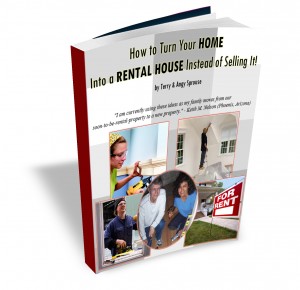I’d like to share with you a recent question that I received from a reader of my blog. The question was:
“I lived in my primary home for two years and now it’s a rental, can I sell it without paying capital gains?”
My “short” answer is:
That depends on how long the house has been a rental.
By Way of Background Information
The 1997 Taxpayer Relief Act was a great boost for average people who wanted to sell their home and buy a new one. It was also a great boost for investors. Couples are allowed to exclude up to $500,000 of the capital gain on the sale of their primary residence. Single individuals can exclude up to $250,000.
In other words, the sale of the house is never reported on your federal IRS forms if the capital gain is less than the $500,000 and $250,000 limits.
This exclusion is based on compliance with two requirements:
1.) The home must have been the primary residence for both spouses during two of the last five years. The two years do not have to be consecutive but if you rent out the primary residence for more than three years you would be required to occupy it again for two years.
2.) The exclusion is available only once every two years.
What if you sell you house and your capital gains exceed the established limit?
Capital gains above $250,000 for singles and $500,000 for couples are taxed at the applicable rate.
What if you sell your house before meeting the two year requirement?
If you qualify under one of the “unforeseen events” listed in Internal Revenue Service Publication 523 Selling Your Home, such as a job change, illness or an unusual hardship, you can still qualify for a prorated exclusion.
The Ideal Strategy for the Pathologically Conservative Investor
Utilization of this tax exemption is the safest investment strategy for the conservative investor who wants to take few risks. This is the type of investor who wears both suspenders and a belt to hold up his pants. They like to play it really safe.
Under this strategy, the investors can qualify for the least expensive type of loan, the owner-occupied loan. There is no need to worry about tenants destroying your rental property or not paying the rent. You completely control the investment by living in the property yourself. When you sell, you have the opportunity to make up to $500,000 tax-free profit every two years.
So, following that long-winded, yet surprisingly informative, background spiel, my “final” answer to the question is:
If you have lived in your house 2 of the last 5 years, you are entitled to take the exemption.
Coming Soon!







